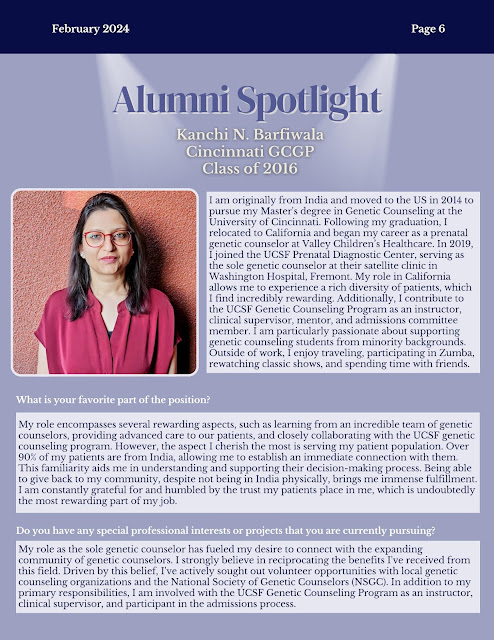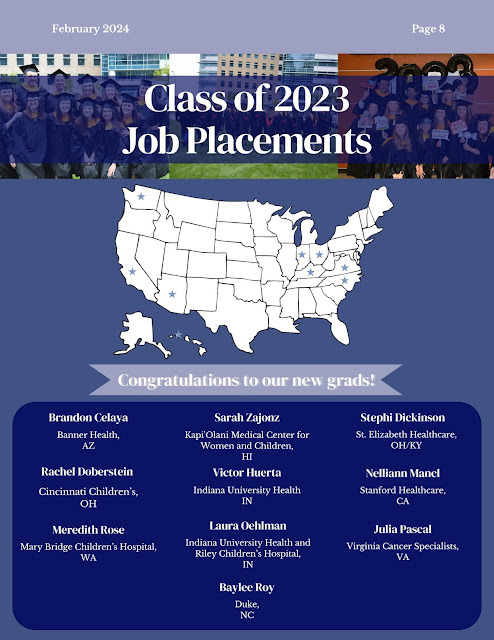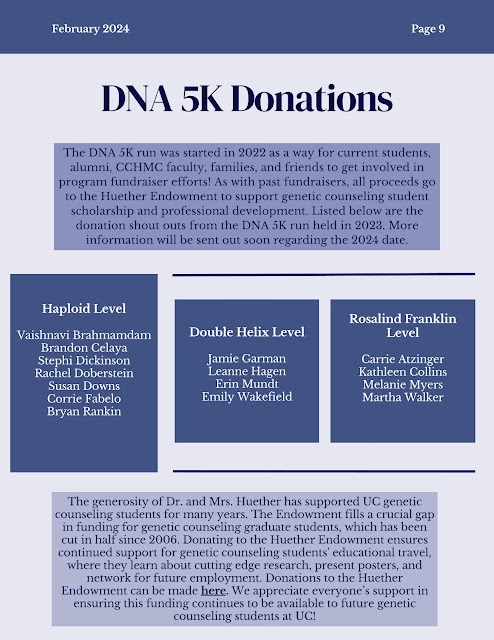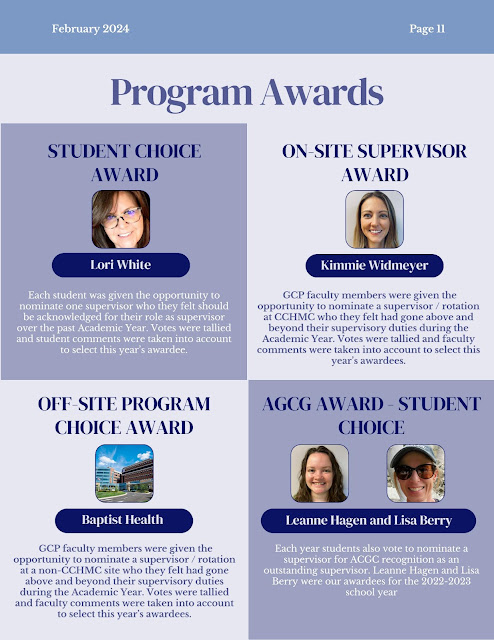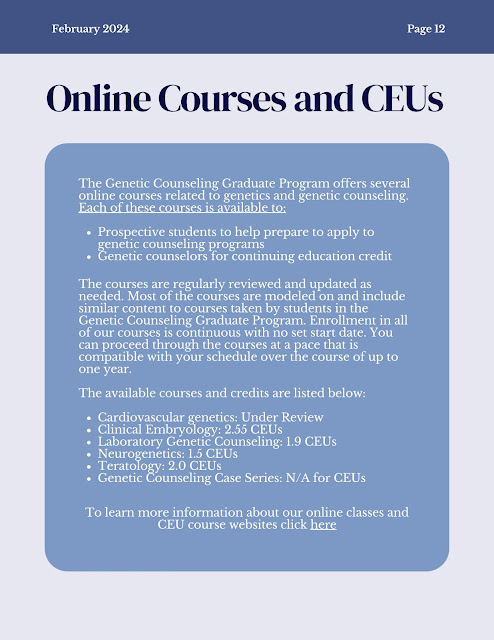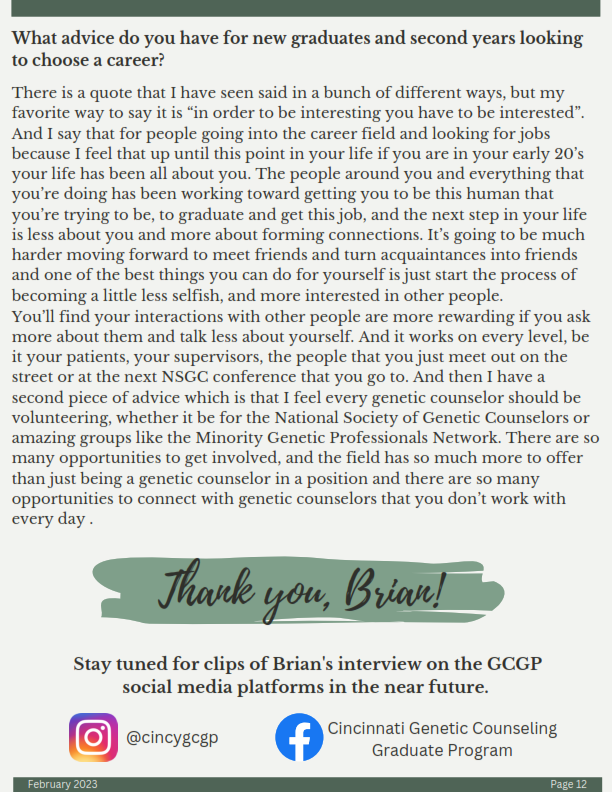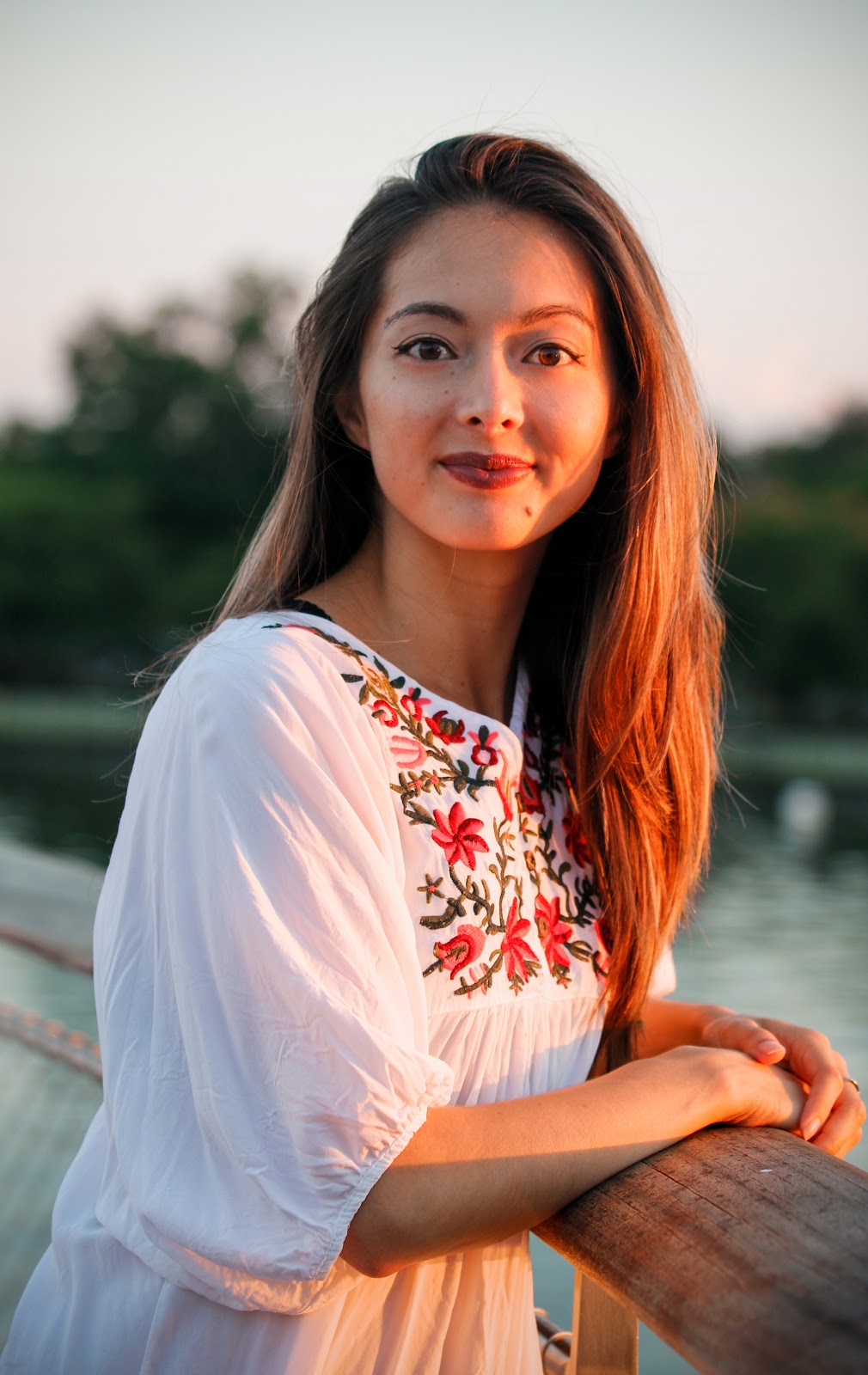Our journey as genetic counseling students is one of continuous learning, not just about genetic syndromes and inheritance patterns, but also about the intricate tapestry of human emotions and resilience in the face of medical adversity. For me, genetic counseling came after a first career path in teaching science, so the advanced biology concepts of our clinical coursework were within my comfort zone. However, I was acutely aware that I needed extra focus on knowing better that human tapestry in order to be an empathetic support to patients and families receiving genetic diagnoses. While genetics is undoubtedly crucial in our understanding of health, I realized that the human aspect, the emotional and spiritual dimensions, would also demand equal attention.
Discovering a Different Dimension of Support
The GC program at UC allows us to create an elective rotation that aligns
with our personalized interests in becoming GCs, so in order to meet the gap in
my skills, I kept an open mind for opportunities. During a lesson from
StarShine, who help with pediatric hospice here at Cincinnati Children’s, I was
able to find a unique avenue to further explore the psychosocial skills we
would be learning. They mentioned a branch of psychosocial services in the
hospital that intrigued me as someone with a background in comparative
religion. With this inspiration, I created a 5-week elective rotation like no
other that had been developed by a GC student of the program before: I embarked
on the path of shadowing the chaplains of the Spiritual and Grief Services at
Cincinnati Children’s.
To begin, I worked with the Director of Spiritual and Grief Services to come
up with a plan. We decided I would spend a full day each week shadowing a
chaplain in different areas of interest to me in the hospital. First, I would spend
a day at the Heart Center/CICU, with families waiting for organ transplants for
their children, then the following week, I would walk the halls of the PICU/ER,
where the chaplain was the point person for the parents as they watched their
child get emergency care. Later on, in the NICU, I would watch the chaplains
help families spend the first months of their babies’ lives grappling with hard
diagnoses. Towards the end of the rotation, I would shift to the Transgender
Clinic, where the lead chaplain had pioneered work in spiritual support for
members of this community, and lastly, I would shadow the chaplain of the
Cancer and Blood Diseases Institute, supporting pediatric patients going
through chemotherapy and bone marrow transplants. Each day would be profoundly
different from the other, but I picked up on some key themes.
Walking Alongside Families
From the first moments meeting with my first chaplain supervisor, I was
struck by the strength of her presence. Within minutes of spending time with
her, I felt comfortable and welcome, as if I had known her for years. While I
later learned this was a special talent for this chaplain, she showed me that
chaplains are not just providing spiritual guidance; they are companions of families
navigating the trepidations of medical odysseys. Sometimes, they attend
provider team meetings with a family to advocate for extra time to understand
their child’s condition. Sometimes after a family receives bad news or decides
to remove life support, they sit with them just to listen. Sometimes, they
simply show a parent where they can stand in the room during an emergency
procedure, here close by but out of the way. Whether it was holding space for
grief, offering solace in uncertainty, or simply lending a listening ear, the
chaplains exemplified the art of being present. I can implement this presence
in my practice as a GC by slowing down, observing silence to hold space long
enough to let the human experience take place within the session.
Learning to Listen with the Heart
Another valuable lesson I gleaned from my time with the chaplains was the skill
of active wholehearted listening. If a family shared a piece of good news, the
chaplain responded with excitement and joy in kind, a true celebration in that
moment. If they shared an emotional struggle, they returned with an empathy
statement with a human element that seemed more direct: “There are no words to
describe this.” “You are going through hell.” “I’m so sorry this is part of
your story now.” It was more than reflecting back their emotional experience
with words; it seemed to provide weight, to make it real. They asked, “What gives
you strength? Who is your biggest support? What are your hopes?” In our
training, we are also given standard tools of counseling that are very similar:
empathy statements, psychosocial assessments, silence; this experience let me
reshape those tools into what fit more comfortably in my human hands.
Embracing the Multifaceted Nature of Support
One aspect of the role of chaplain that I did not realize before this
rotation was how much they also support the staff in the hospital. Not only do
they provide education on unique cultural rituals or beliefs, but also, they debrief
with staff after difficult emotional encounters. After the death of a patient,
which a chaplain is always required to attend, they coordinate a thorough grief
process that serves the team no matter their spiritual background. As
psychosocial workers, we will often provide care to our fellow team members
navigating tough cases, but we are not alone. There is an additional resource
for us wherever we go so long as there is a chaplain service available,
regardless of our spiritual affiliations.
Looking Ahead
As I reflect on my time spent with the chaplains, I carry with me a newfound
appreciation for the power of connection and empathy in the realm of
healthcare. Moving forward in my journey as a budding genetic counselor, I am
committed to embodying these principles in my practice, ensuring that every
individual and family I encounter feels seen, heard, and supported. In the
intersection between genetics and humanity lies a profound opportunity for
healing and growth. My clinical rotation with the chaplains has reminded me
that the essence of our work as genetic counselors extends far beyond the
confines of a genetic code—it resides in the hearts and minds of those we
serve.
-Megan Chandler, Class of 2024








